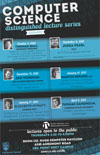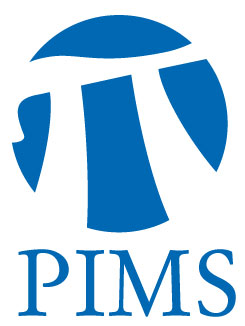Computer Science Distinguished Lecture Series: Judeah Pearl
Topic
The Mathematics of Cause and Effect
Speakers
Details
Recent developments in graphical models and the logic of causation have had a drastic effect on the way scientists now treat problems involving cause-effect relationships. Paradoxes and controversies have been resolved, slippery concepts have been demystified, and practical problems requiring causal information, which long were regarded as either metaphysical or unmanageable can now be solved using elementary mathematics.
I will review concepts, principles, and mathematical tools that were found useful in this transformation, and will demonstrate their applications in several data-intensive sciences. These include questions of causal effect estimation, confounding control, policy analysis, misspecification
tests and the integration of data from diverse studies.
Of special emphasis would be the following topics:
The Mediation Formula, and what it tells us about direct and indirect effects.
What mathematics can tell us about "external validity" or "generalizing from experiments"
What graph theory can tell us about recovering from sample-selection bias.
Reference: J. Pearl, Causality (Cambridge University Press, 2000)
I will review concepts, principles, and mathematical tools that were found useful in this transformation, and will demonstrate their applications in several data-intensive sciences. These include questions of causal effect estimation, confounding control, policy analysis, misspecification
tests and the integration of data from diverse studies.
Of special emphasis would be the following topics:
The Mediation Formula, and what it tells us about direct and indirect effects.
What mathematics can tell us about "external validity" or "generalizing from experiments"
What graph theory can tell us about recovering from sample-selection bias.
Reference: J. Pearl, Causality (Cambridge University Press, 2000)
Additional Information
This is a Past Event
Event Type
Scientific, Distinguished Lecture
Date
November 8, 2012
Time
-
Location


